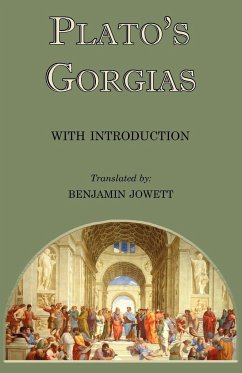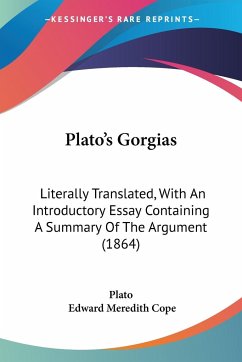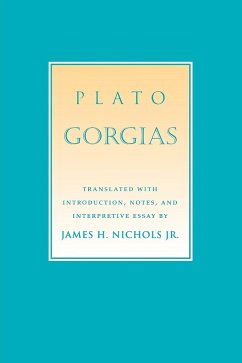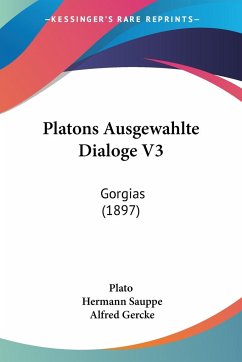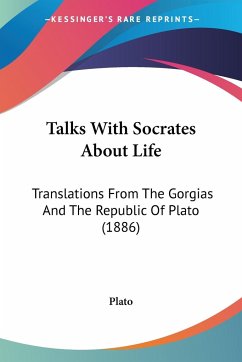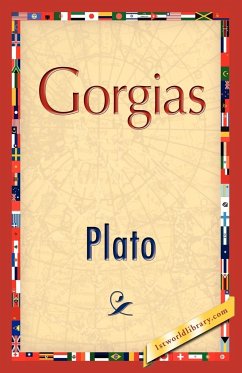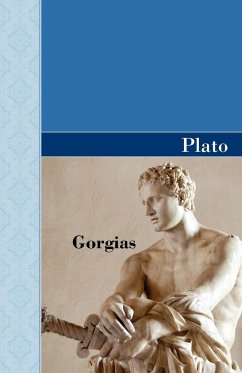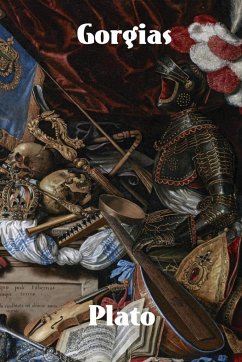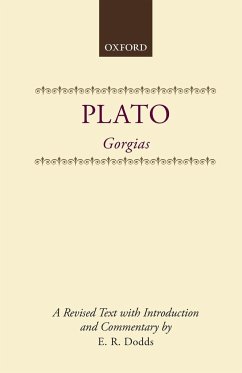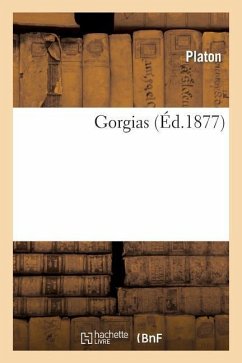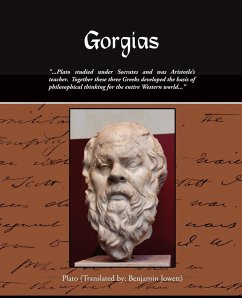
Gorgias
Versandkostenfrei!
Versandfertig in 1-2 Wochen
19,99 €
inkl. MwSt.

PAYBACK Punkte
10 °P sammeln!
Plato studied under Socrates and was Aristotle?s teacher. Together these three Greeks developed the basis of philosophical thinking for the entire Western world. Plato was also a writer, mathematician, and founder of the Academy in Athens, which was the first university in Europe. This dialogue is between Socrates, Gorgias, Polus and Callicles. Callicles believes that might is right. Gorgias argues that oratory and the power to persuade represent ?the greatest good.? Socrates argues that the responsibility of a politician is to serve his people. Insights can be gained into how classical Athens...
Plato studied under Socrates and was Aristotle?s teacher. Together these three Greeks developed the basis of philosophical thinking for the entire Western world. Plato was also a writer, mathematician, and founder of the Academy in Athens, which was the first university in Europe. This dialogue is between Socrates, Gorgias, Polus and Callicles. Callicles believes that might is right. Gorgias argues that oratory and the power to persuade represent ?the greatest good.? Socrates argues that the responsibility of a politician is to serve his people. Insights can be gained into how classical Athens was governed and these insights still hold true today.



